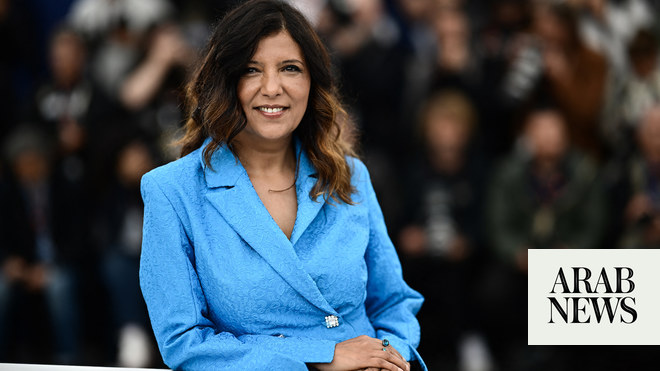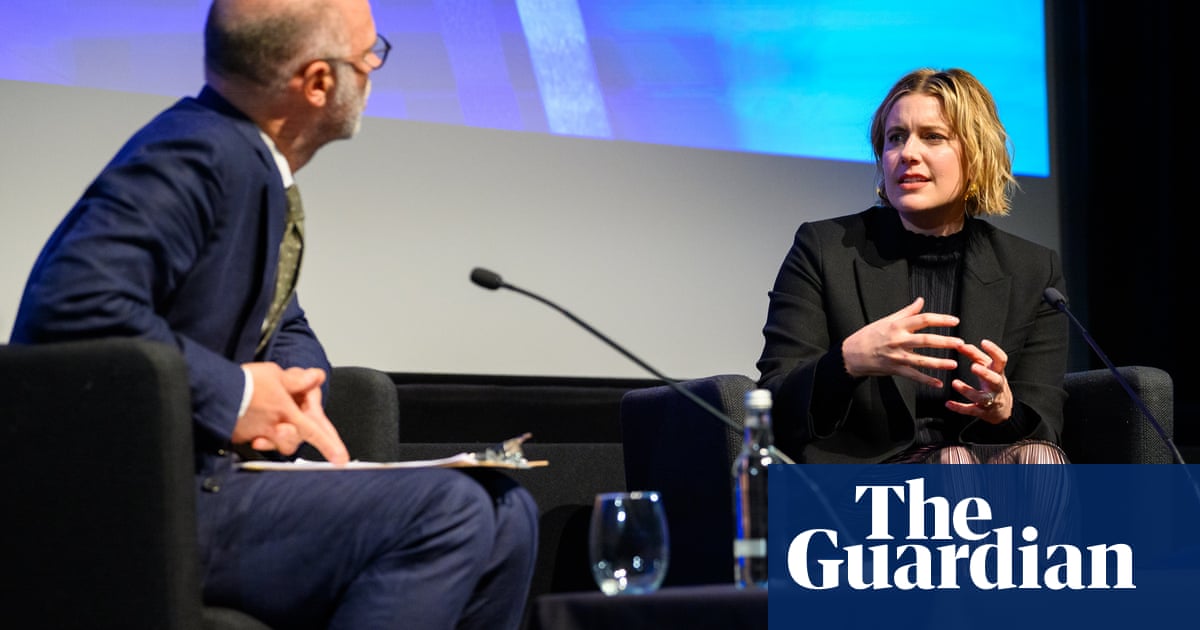
The filmmaker discusses her Oscar-nominated adaptation of the classic novel
LOS ANGELES: There are few books that have become as popular as Louisa May Alcott’s 1868 novel “Little Women.” So it’s no surprise that it has been adapted seven times for the big screen — not to mention numerous other adaptations for television, radio, theater and even opera.
What may be surprising, however, is that nearly 150 years later, “Little Women” has reached its zenith on the big screen with director Greta Gerwig’s stirring 2019 adaptation, nominated for Best Picture at the 2020 Academy Awards.
The story of four sisters fighting against the limitations set on woman in a patriarchal society that provides few avenues for their brilliance to flourish, “Little Women” remains both relevant and inspiring. Its most beloved character, Jo March, is an aspiring writer who refuses to marry and conform to her family’s expectations — she is a character in whom Gerwig saw something of herself, as many others had before her.
Louisa May Alcott’s 1868 novel “Little Women” has been adapted seven times for the big screen. (Getty)
“As I was doing my research on “Little Women,” I kept finding all of these different, amazing women who had this same love for Jo I had — from Patti Smith and Simone de Beauvoir to Elena Ferrante and Anna Quindlen,” Gerwig told Arab News. “Jo has meant something to many writers and thinkers from completely disparate backgrounds, and many of them are people that you wouldn’t necessarily associate with loving ‘Little Women.’
“There’s a rebel spirit contained in Jo,” she continued. “And I think this hope for a life beyond what your gender dictates is completely exciting to us still. She’s this girl with a boy’s name who wants to write, and she’s ambitious and she’s angry and she’s so many different things that we identify with. It’s like she allowed us to be free.”
Even from afar, it’s hard not to see a lot of wunderkind writer Jo March in Gerwig. Still only 36, Gerwig has been writing and directing films since debuting with 2008’s “Nights and Weekends” at the age of 25. In many ways, “Little Women” is the film she was destined to make, as Gerwig’s previous films — including “Frances Ha” and “Lady Bird” — captured young women tackling many of the same issues with Jo’s fearless attitude.
“I had this movie burning inside of me to make. I wanted to tell the story of women making art, women making money, women making choices, and about the way you can bring the bravery of girlhood into adulthood,” Gerwig explained. “Sometimes, when you follow a hunch about a story then it feels like the world bears you out. This story speaks to us still because it’s such a humanist work. It’s a story of family and of human connection that’s not gendered, which has allowed it to transcend place and time.”
Still only 36, Gerwig has been writing and directing films since debuting with 2008’s “Nights and Weekends” at the age of 25. (Supplied)
Gerwig had numerous ideas about how her version of “Little Women” could be different from those that came before it, including focusing on the financial struggles that the sisters have, as well as their brilliance as artists. To capture their vivacious energies, Gerwig instructed the actors — Saoirse Ronan as Jo, Emma Watson as Meg, Florence Pugh as Amy and Eliza Scanlen as Beth — to avoid the traditional stilted way that characters in films, particularly period-drama adaptations, deliver dialogue.
“I wanted it to feel like the sisters were tumbling over each other with excitement, and I wanted it to sound like how sisters talk. I didn’t want it sound like everybody waiting their turn, because that’s not my experience of how a bunch of sisters are when they’re together,” Gerwig told Arab News. “Having such great actors, I had tremendous trust, because I knew they would make it more alive and deeper. I didn’t want the overlapping dialogue to feel like a cacophony, I wanted it to be very specifically overlapped, so it was almost like conducting an orchestra. We rehearsed for a couple of weeks, which was pretty essential because the script was so precise.”
Gerwig also played with the book’s structure, opting to start with the March sisters as adults, telling the earlier stories not as flashbacks but as a separate timeline that eventually meets up with the film’s main threads.
“I had the idea to allow their childhoods to live alongside them not as flashbacks but as two separate timelines. It captures the reality that when we walk down the street, we’re always walking with the younger versions of ourselves,” the filmmaker explained. “We’re always integrating the person we thought we were going to be with the person we are now.”












